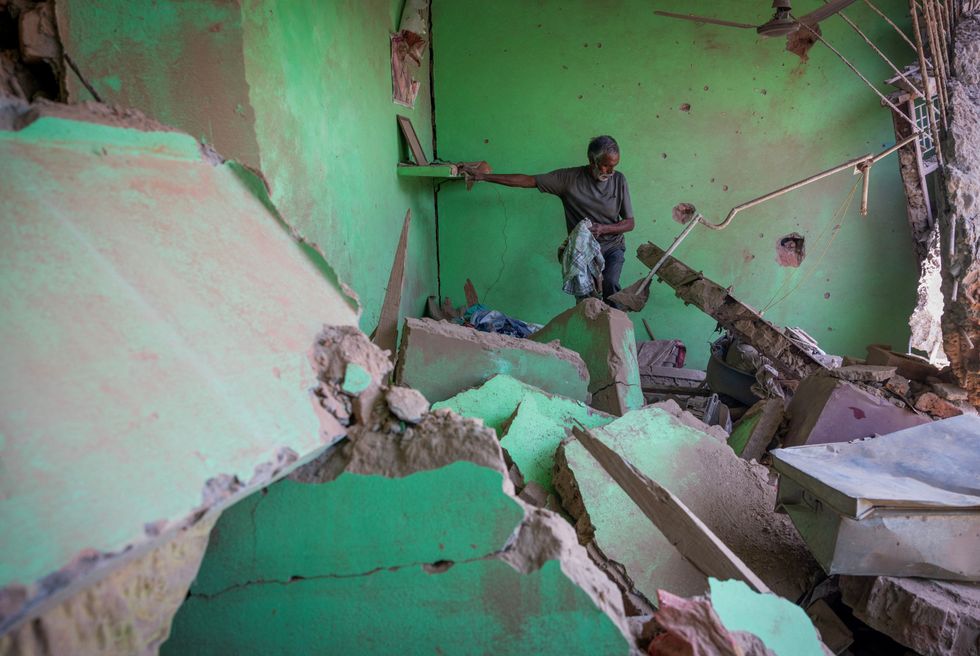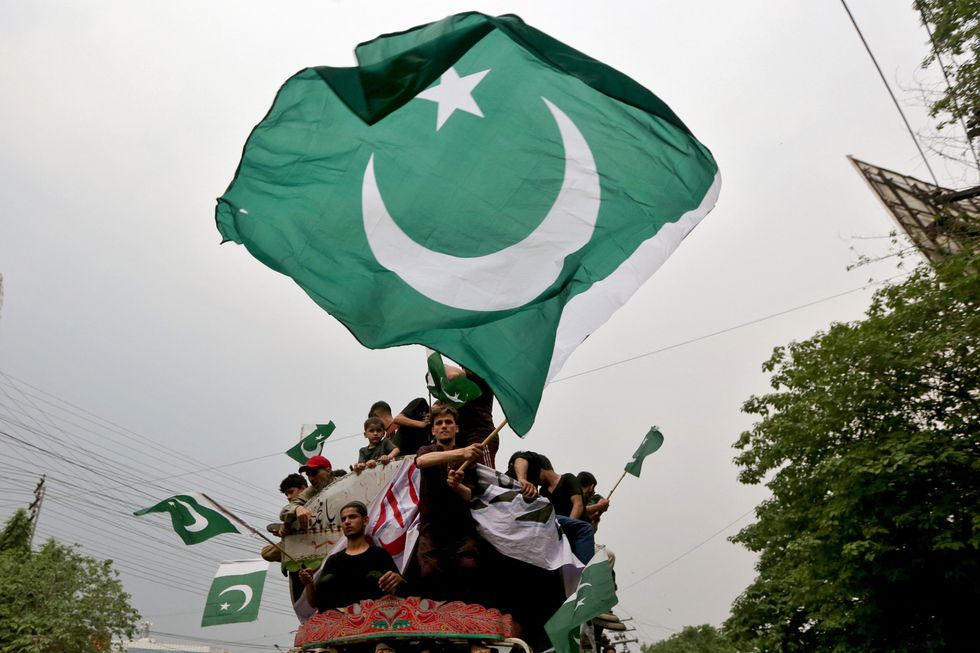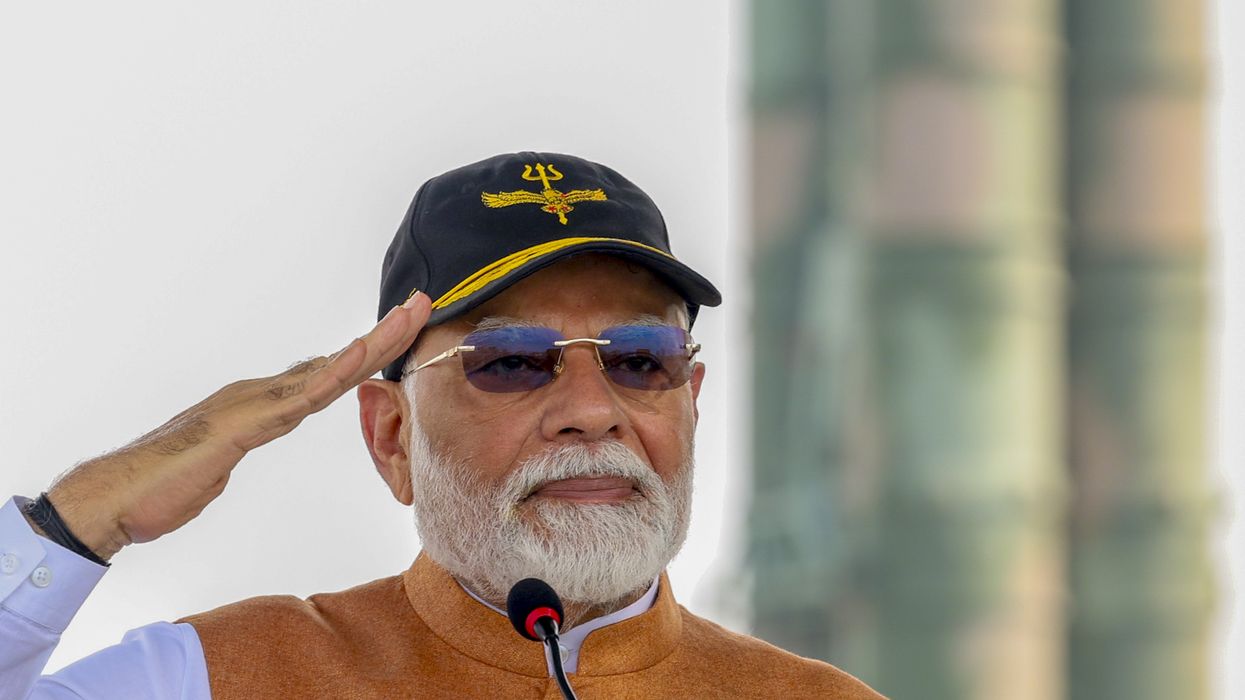INDIA’S prime minister Narendra Modi on Monday (12) vowed to respond forcefully to any future “terrorist attack” after days of escalating tensions with Pakistan.
In his address to the nation, Modi warned New Delhi would not accept “nuclear blackmail” if further conflict with Pakistan were to occur.
A weekend ceasefire between the two countries appeared to be holding this week, after four days of heavy fighting. Last week’s conflict involved jetfighters, missiles, drones and artillery attacks, marking the worst violence between the countries since 1999.
Global leaders, including UK foreign secretary David Lammy, said the current tense situation requires “sustained dialogue between both sides” to prevent further hostilities in the region.
The UK welcomed the ceasefire agreement last Saturday (10) and encouraged both countries to continue working towards deescalation. Urging both India and Pakistan to “sustain the ceasefire”, Lammy said he had chaired a COBRA meeting on the situation and that maintaining the truce was a priority.
“I know the images from India and Pakistan have been deeply worrying for many communities in Britain, and for those living and working in both countries,” the foreign secretary said. “Given our strong and close relationships with India and Pakistan, the UK stands ready to work with both sides to make lasting peace a reality.”
He said he had spoken to India’s external affairs minister, S Jaishankar, and Pakistan’s deputy prime minister and foreign minister Ishaq Dar.
“My message to both was the same – ensure this ceasefire agreement is extended and sustained. Further conflict is in nobody’s interest,” he said.
Lammy also said the UK was working with the US, Saudi Arabia, the UAE and EU counterparts to support peace. Foreign Office teams were in touch with airlines and advising British nationals in the region.
“We value the contribution of British Pakistani and British Indian communities to this country, and their long and proud history of living here side by side,” he said.

The ceasefire was announced last Saturday by US president Donald Trump. He said on Monday his country’s intervention had prevented a “bad nuclear war”.
“We stopped a nuclear conflict... millions of people could have been killed. So, I’m very proud of that,” he told reporters at the White House.
Top Indian and Pakistan military officials held briefings late last Sunday, with each side claiming the upper hand and warning they were ready to respond if there were fresh attacks.
“We have delivered on the promise that we made to our people”, said Pakistan’s military spokesman, Lieutenant General Ahmed Sharif Chaudhry, calling it a “success on the battleground”.
“We have thus far exercised immense restraint and our actions have been focused, measured and non-escalatory,” said India’s Lieutenant General Rajiv Gha.
Pakistan claimed to have downed five Indian fighter jets, something New Delhi has not commented on.
People returned to Poonch earlier this week, a frontier town in Indian Kashmir and one of the worst-hit places.
But thousands of schools remained closed across Pakistani Kashmir as areas were cleared of debris from strikes and firing, said local official Naveed-Ul-Hassan Bukhari.
Pakistan’s foreign ministry said it hoped “India will prioritise regional stability and the well-being of its citizens over narrow, politically motivated jingoism”.
Modi, in a televised address to the nation on Monday, his first since hostilities began last Wednesday (7), said Pakistan has chosen to attack, rather than help it fight “terrorism”.
“If another terrorist attack against India is carried out, a strong response will be given,” he said.
The conflict followed an April 22 attack on tourists in Indian Kashmir, which killed 26 civilians. India accused Pakistan of backing the attack, but Islamabad denied involvement.
However, before dawn last Wednesday, India launched a series of missile attacks destroying what it called “terrorist camps” in Pakistani Kashmir.
Each side then accused the other of launching waves of aircraft and drone strikes, as well as missile and artillery bombardments that killed at least 60 people on both sides.
“If Pakistan wants to survive, it will have to destroy its terror infrastructure,” Modi said. “India will strike with precision and decisiveness against the terrorist groups thriving under the cover of nuclear blackmail.
“India’s stand is very clear. Terror and talks cannot go together... Terror and trade cannot go together... Water and blood cannot flow together.”
On Tuesday (13), the prime minister delivered another message to Islamabad from Adampur Air Base, just 100 km from the Pakistan border. “Operation Sindoor has now drawn a clear Lakshman rekha [red line] for Pakistan,” said Modi, who was wearing a Western Air Command cap with its trademark trident emblem.
“When our armed forces take the wind out of nuclear blackmail, our enemies understand the importance of Bharat mata ki jai,” he said with an S-400 missile defence system visible behind him.
The prime minister praised the military for their recent success in the fourday engagement known as Operation Sindoor, which resulted in the destruction of nine terrorist sites and damage to eight Pakistani military installations.
“What you have achieved is unprecedented, unimaginable and amazing,” Modi told the soldiers, who had greeted his surprise arrival with patriotic chants.
Pakistan previously falsely claimed to have destroyed that particular base, including its S-400 missile launchers. Adampur is India’s second-largest air base, home to Rafale and MiG-29 squadrons. It has historical importance, having played crucial roles in the 1969 and 1971 wars with Pakistan.

Meanwhile, many in Indian Kashmir are demanding compensation for damages from cross-border firing.
Hundreds of villagers evacuated their homes as both countries targeted each other’s military installations with missiles and drones. Many returned to find their homes destroyed or roofless.
“Where will we go with our kids? We don’t have anywhere to live and anything to eat,” said Roshan Lal, from the village of Kot Maira in Akhnoor in India’s district of Jammu, about seven km (four miles) from the de facto border.
The shelling had left his home uninhabitable, the 47-year-old added.
“I want to ask Modi’s government for justice,” he said. “We need compensation for the damages.”
In the nearby village of Pahari Wala, farmer Karan Singh said he buried seven cattle in his field, while his family are living in makeshift shelters. “I left the village when the conflict began,” he said.
“We don’t have a place to stay.”
In Salamabad, a border village in the Kashmir Valley, shelling injured Badrudin Naik and his six-year-old son, but both returned home after five days.
“I am happy to return,” he said. “But my house is damaged. My two uncles’ houses were completely destroyed. We want permanent peace as it is we on the border who suffer more.”
Pakistan’s army said on Tuesday that more than 50 people were killed in military clashes with India.
India has said at least five military personnel and 16 civilians died.
Trump, meanwhile, said he promised to do a “lot of trade” with India and Pakistan, after which the countries agreed to a ceasefire, describing “the historic events that took place over the last few days”.
“We helped a lot, and we also helped with trade. I said, ‘Come on, we’re going to do a lot of trade with you guys. Let’s stop it, let’s stop it. If you stop it, we’re doing trade. If you don’t stop it, we’re not going to do any trade.
“People have never really used trade the way I used it. By that, I can tell you, and all of a sudden they said, ‘I think we’re gonna stop’, and they have,” he US president said.




